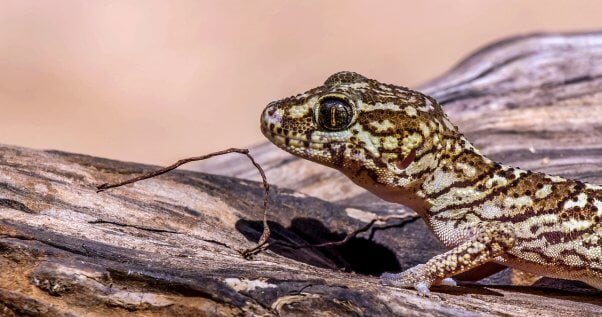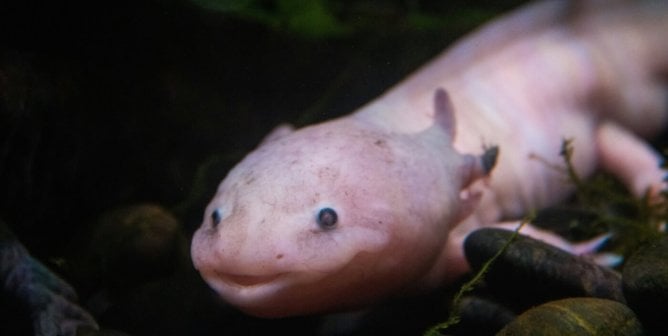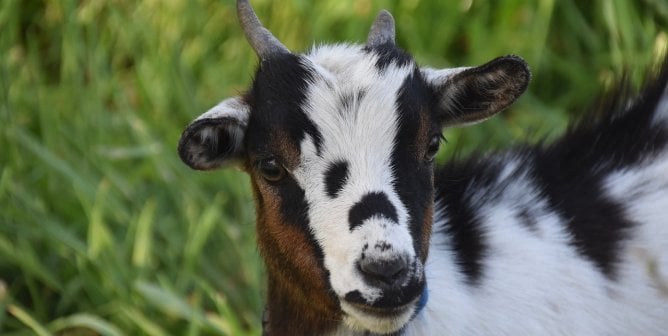Did You Know Geckos Are Caring Moms? Learn 10 Fast Facts About Geckos
Geckos are fascinating animals with various qualities that make them stand out in the animal kingdom. They also share traits with humans that many people might not be aware of.
1. Geckos Exhibit Complex Social Behaviors
Geckos display a variety of social behaviors, including engaging in courtship rituals and defending their territory. They can recognize each other and often show signs of distress when separated from their companions.

2. Geckos Have a Keen Sense of Smell
Geckos use their keen sense of smell to locate food and receive messages from each other via chemical signals, or pheromones, which help them interact and find mates.
3. Geckos Possess Problem-Solving Skills
Geckos are clever, with problem-solving skills that allow them to find hidden food and quickly adapt to new environments. These abilities undermine the old and incorrect belief that reptiles are capable of only simple, instinctive behaviors.
4. Geckos Have Unique Personalities
Some geckos stay hidden, avoiding new places and others of their kind, whereas others boldly explore every nook and cranny they encounter. These behaviors highlight that geckos, like us, have distinct and fascinating personalities.

5. Geckos Experience Stress
When geckos are stressed or scared, they might change color, lose their appetite, or become more aggressive. But when they feel safe and comfortable, you’ll see them basking in the sun or exploring their natural habitat with ease.
6. Geckos Are Sensitive to Their Environment
Geckos react strongly to changes in their surroundings, including fluctuations in temperature, humidity, and light. When conditions aren’t ideal, their health can suffer. Living in nature, where they have everything they need, is essential for their well-being.
7. Geckos Are Excellent Mothers
Female geckos are protective mothers who carefully select a place to nest and guard their eggs until they hatch. They care about keeping their babies safe!

8. Geckos Communicate Through Body Language
Geckos use tail wagging and head bobbing to show how they feel. They use sounds, movements, and even gentle nips or nudges to communicate. These gestures help them claim their space, find mates, and keep threats at bay.
9. Geckos Feel Pain
Geckos and other lizards feel pain just like mammals do. When they’re injured or upset, they will hide more often or move less to avoid danger. Then they find safe, quiet places to rest and recover.
10. Geckos Don’t Make Good ‘Pets’
Geckos are natural explorers, always on the lookout for food, mates, and new hiding spots. Keeping them in terrariums limits their adventurous spirit and robs them of the freedom to roam and interact as they would in nature.
Caring for a gecko companion involves more than just setting up a pretty terrarium. You need to use heat lamps to maintain the right temperature and humidity controls to mimic conditions in their natural habitat. Geckos also require expert veterinary care to address any health issues. The expenses can add up quickly, and the time commitment required can be significant. Geckos need constant attention and a specialized environment to thrive—far more than most people realize.
PETA Answers Frequently Asked Questions About Geckos:
- What is special about geckos? Geckos have many special abilities. They can climb with their sticky feet and regrow their tails if they lose them. Beyond that, they’re important in their ecological niche because they keep insect populations in check, which helps prevent damage to plants and keeps the environment in balance.
- Are geckos meant to be “pets”? No, geckos aren’t meant to be “pets.” They thrive in their natural habitat. Keeping them as “pets” often leads to stress and health issues due to a poor environment, a lack of freedom, and neglect or lack of knowledge on the part of their owners.
- Do geckos enjoy being held? No, geckos do not enjoy being handled by humans. Holding them can cause significant stress and discomfort, as they’re not accustomed to such interactions in their natural habitat.
- What do geckos do in your home? Captive geckos sit in a terrarium all day, languishing from stress and deprivation. However, ones who wander into your home explore it freely, hunting for insects and finding cozy spots to rest.
- How long do geckos live as “pets”? While geckos can live 10 to 20 years in captivity , this extended life expectancy often comes with health problems and stress from the limitations of their artificial environment. In fact, most “exotic pets” don’t survive even one year after being purchased.
- What are the different types of geckos? There are many types of geckos, each with unique features and habitats. Here are some of the best-known types.
- African fat-tailed geckos: Named for their native continent and their thick, fat-storing tails, these geckos have a robust build and are typically terrestrial.
- Common house geckos: Common in human dwellings, these geckos are small and often brown or gray. They live in various parts of the world.
- Crested geckos: Recognizable by the “crests” or fringes of skin along their head and back, these nocturnal geckos originally came from New Caledonia in the South Pacific.
- Day geckos: Vibrant in color and active during the day, these geckos are typically found on Madagascar and nearby islands. They’re known for their bright green and blue hues.
- Leopard geckos: These ground-dwelling lizards are known for their distinctive spotted patterns and a wide range of color variations. They’re native to parts of Asia and the Middle East.
- Tokay geckos: Distinguished by their bright colors and large size, these geckos, native to Southeast Asia, are known for their loud vocalizations.
Take Action: What to Do if You See a Gecko for Sale
Unlike dogs and cats, geckos aren’t domesticated animals. Every gecko sold as a “pet” was either captured from their natural habitat or bred from geckos in captivity. When people want animals, industry supplies them—always at the animals’ expense. That’s why it’s crucial that people don’t buy geckos or any other animals from pet stores.
These stores and breeders fuel a heartless industry in which animals—including geckos and other reptiles, birds, fish, cats, dogs, and rabbits—are treated like products. With millions of animals already homeless in shelters, there’s no such thing as “responsible breeding.” If someone profits from selling animals, you can be sure that animal welfare isn’t their priority. PETA is committed to ending animal suffering in the pet trade, and together, we can stop the cycle of breeding and buying that fuels the companion animal overpopulation crisis.




